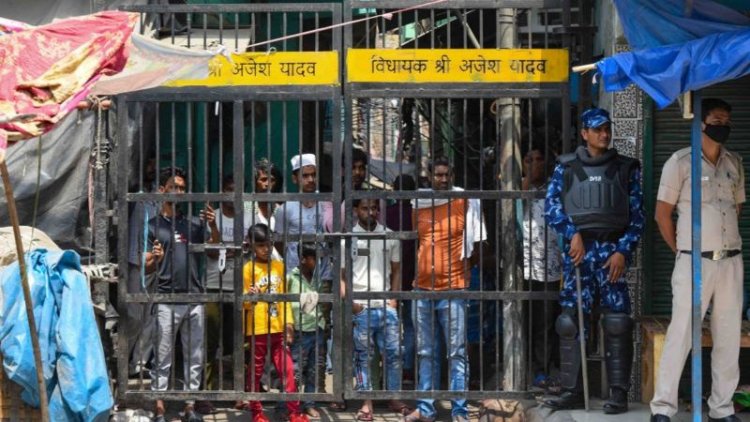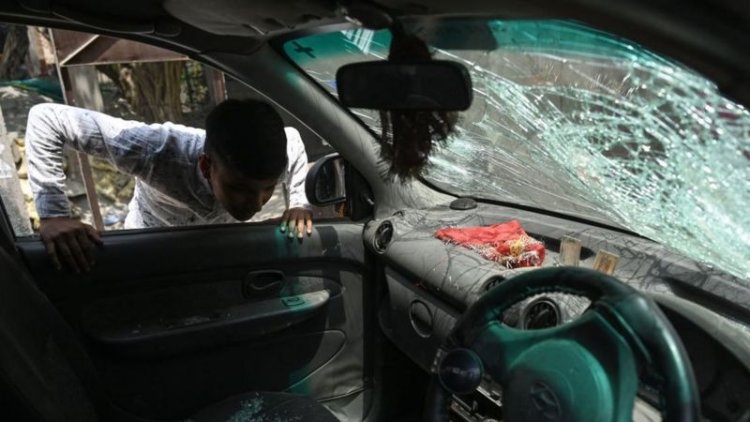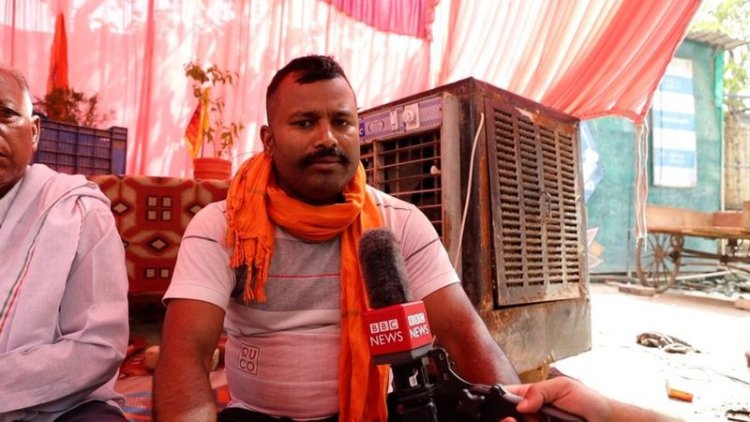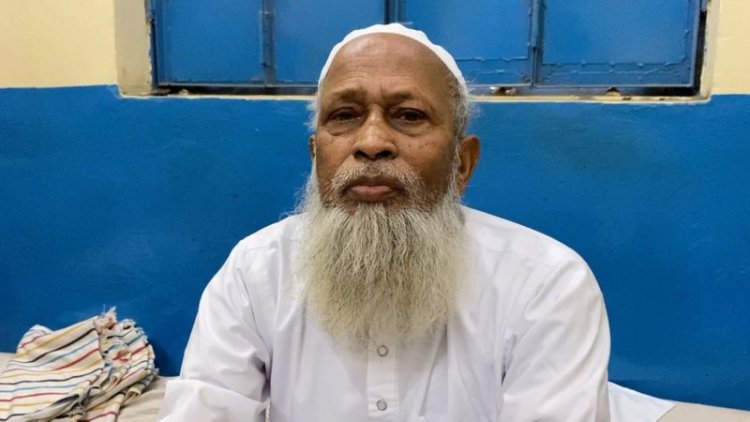After religious violence in Jahangirpuri, Delhi, is shocked and angry.
Residents in Jahangirpuri were riveted to their phones and news channels when BBC Hindi came to town, watching and sharing their reactions to viral videos and news coverage.

After a religious procession in Delhi's Jahangirpuri provoked ethnic violence, BBC Hindi's Vineet Khare visited the congested neighborhood and found locals enraged and distrustful.
The violence, which erupted on Saturday, injured around nine individuals, including seven police officers. A bullet struck one of the officers.
A couple of days later, the atmosphere in the rather poor neighborhood, which has a substantial Bengali-speaking Muslim community, was still tense.
Hundreds of people, including many members of right-wing Hindu organizations, marched to commemorate the birth anniversary of the Hindu god Hanuman, according to eyewitnesses. Participants are seen dancing and screaming religious slogans in videos, with several wielding swords and tridents.
The march passed a mosque, and that's where the trouble broke out. Stones were thrown, triggering the violence.
Both sides blame the other. The marchers say they came under an organized attack by Muslims, who threw stones and other sharp objects from rooftops.

Muslims deny this, saying that Hindus yelled provocative slogans near the mosque, leading to an argument. The first stone, they allege, came from the other side.
The Delhi police have detained 23 persons, two of them aids. The crime department of the police is still looking into how the violence started. They're also investigating allegations made by local Bharatiya Janata Party (BJP) leaders that the violence was caused by "illegal immigrants from Bangladesh."
The riots erupted in Delhi for the first time since the 2020 riots, which killed more than 50 people, predominantly Muslims, and were identical to those that erupted lately in Madhya Pradesh and Rajasthan.
Violence erupted after religious processions commemorating the Ram Navami festival passed close to mosques.
After the Jahangirpuri incident, 13 opposition parties issued a joint statement, expressing shock at Prime Minister Narendra Modi's silence.
"This silence is an eloquent testimony to the fact that such private armed mobs enjoy the luxury of official patronage," they said.
Religious polpolarizations soared in India since 2014 when Mr .M.odi's Hindu nationalist government swept to power. Festivals, in particular, have become frequent flashpoints for communal violence.
Versions that differ
Residents in Jahangirpuri were riveted to their phones and news channels when BBC Hindi came to town, watching and sharing their reactions to viral videos and news coverage.
Some of them claimed that this was the first time in the area that such religious conflicts had erupted. However, many Hindus in the area were outraged, claiming that their procession had been attacked without provocation.
Sukhen Sarkar, the march's organizer, was in the middle of a crowd of men gathered in front of the local Hanuman temple on Saturday.
"We were unarmed and not in a mood to fight. It felt like a shower of stones and glass shards hit us," he said, showing bruises on his foot.

Others surrounding him became passionate and agitated as he continued to speak.
"The attack was meticulously organized. We were besieged by stones, swords, and knives, and we were attacked "Gaurishankar Gupta, who was in the procession, was enraged.
The guys also claimed that the perpetrators utilized petrol bombs and firearms, as well as looted a grain-laden van.
The Muslims a few hundred meters away, near the mosque, had a different story to tell.
Muslims replied only after the demonstrators flung stones and attempted to force their way into the mosque, according to mosque manager Mohammed Salahuddin.
"When our boys saw the mosque was under attack, they couldn't tolerate it," he said.
He denied allegations that stones were thrown from the mosque's roof.
For years, local BJP leaders have claimed that Jahangirpuri is home to a high number of undocumented Bangladeshi immigrants.
The Muslims refute this, claiming to be West Bengal, Uttar Pradesh, and Bihar migrants. For minimal pay, the majority of them work as laborers or junk merchants.

"You can verify our documents," said Mazda, a local who complained that due to biased media portrayal, Muslims were considered criminals.

 Boakyewaa Lawrencia
Boakyewaa Lawrencia 


































